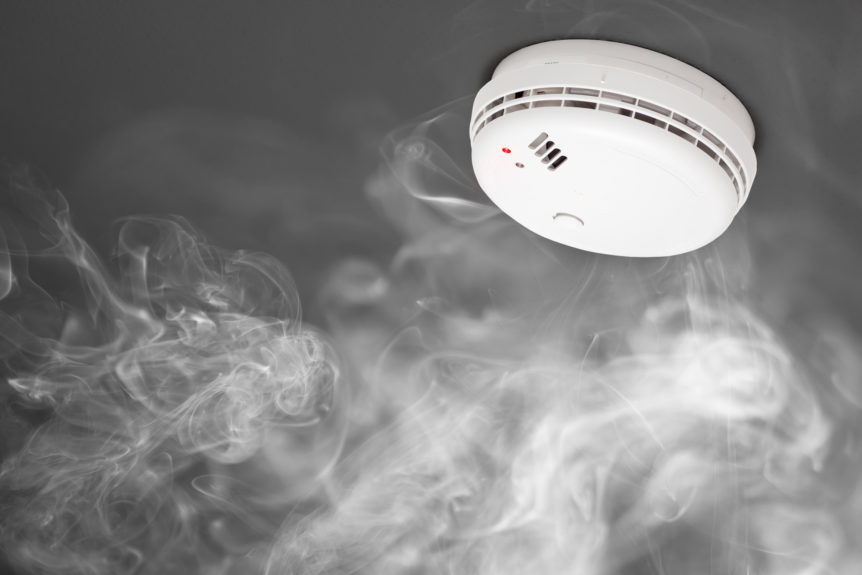It’s a fact: home and office building fire detection systems save lives. Your chance of dying in a home fire is cut in half when there is a working fire detection system present in your place of residence.
The cutting edge of this life safety technology is wireless fire alarms.
This type of fire alarm may be a widespread essential sooner than you might think. Read on to find out why these devices are the future of fire detection.
History of Wireless Fire Alarms
Although wireless fire alarm technology seems new, it’s actually existed since the 1980s. However, early wireless detection systems weren’t always reliable. Because most proved difficult to move once installed, they weren’t favored by architects or designers either.
This is because wireless isn’t, as you might think, without wires. There are some, but fewer, cables involved than you’ll find in a traditional alarm system. Moving alarms and detectors was a hassle most people strived to do without. The process might have meant calling an electrician, drywaller, framer, or more servicemen. The costs would only mount.
Wireless Fire Alarm System Benefits
Luckily, the device has evolved since those days. While wireless still isn’t totally without wires, there’s only one cable left in the whole system. It’s the one that runs from the detector’s control panel to a main power source. This means that newer wireless alarm layouts are much easier to change (and don’t cost nearly as much to replace).
One benefit of a wireless system is its capability to run on backup batteries. A wireless smoke detector will operate fully even in the event of a power failure, which could be a product of fire. While power outages have led to deaths from the failures of wired fire alarm systems, this isn’t a concern with a wireless detector.
Additionally, wireless systems provide a channel of communication with building managers. They can send a warning signal when someone attempts to tamper with their performance.
New wireless systems are particularly effective for hotel operators. They offer the capability of managing over 1,000 addressable devices. In other words, ensures that every room is effectively monitored. Another ideal location for a wireless alarm system is any uncommon place that requires a large nebulous (network of devices). Areas such as zoos, amusement parks, or mobile exhibits certainly fit the bill. Where mobile exhibits like large convention booths are concerned, please note that wireless systems are portable. This means that they can conveniently travel from one event to another with the booths.
Furthermore, a quick installation time frame ensures little disruption to daily business activity while technicians implement a system into a building or business space.
Cons of Wireless Fire Alarms
It’s true – the initial cost of a wireless system is more than that of a less-specialized, wired alarm system. And, to be sure, both the hardware and installation of a wireless system are more expensive than those of their wired counterparts as well. Additionally, because a wireless system runs on batteries, extra costs will come from routine inspections of those batteries. Some systems even run on special batteries and those proprietary batteries will naturally cost more.
You may begin to realize why wireless alarm systems haven’t been preferable for many business owners and building managers for so long.
Is Wireless for You?
But remember a wireless fire system’s benefits. Let’s recap them.
- A wireless system provides a quick installation that is far less disruptive to day-to-day business operations than that of a wired system.
- Wireless detectors are more aesthetically pleasing.
- Critically, wireless detectors allow for future flexibility in their placement.
There are some circumstances that lend themselves particularly well to wireless fire alarms. If you have a historic building with certain aesthetic or spacial restrictions, consider installing a wireless system. Impending renovations or extensions to your building might also be made more efficient with a wireless system instead of a wired one. And don’t forget, if your site is complex with many diverse spaces, rooms, or buildings, a wireless system can work exceptionally well.
While a wireless system is a little more expensive than a traditional wired system, it has its place in the service world. Remember that the more buildings there are under a system’s oversight, the more cost-effective that wireless system will be.
Taking It Wireless
The technology for wireless has come a long way since the 1980s. New technology offers multi-addressable devices and repeaters that possess critical communication abilities and provide efficient network operation.
If you’re ready for a new fire detection system, it’s time to take a look at the many benefits of wireless fire alarms. Do you have questions? Contact Crisp-LaDew today.

